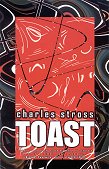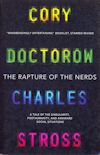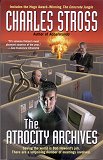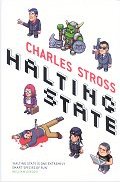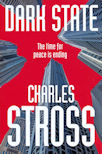A collection of Stross' early short stories. He has a preface explaining how, with things moving so fast, these stories are already out of date (especially the Y2K ones!) However, they all have a very strong Stross "voice", and are well worth reading, despite any slight anachronisms. Stross a few years out of date is still vastly more up to date than many other SF authors!
Contents
- • After the Future Imploded. 2002
- The challenges of writing SF in a rapidly moving world, including an amusing conversation with H. G. Wells
- • Antibodies. 2000
- The dangers of weakly superhuman AIs, and how Everett-worlds agents attempt to stave off the problems.
- • Bear Trap. 2000
- (An Eschaton Universe story.) Stockbroker Alain Blomenfeld is on the run from bankruptcy, when his wife accuses him of acting strangely. But he doesn't have a wife.
- • Extracts from the Club Diary. 1998
- How coffee has fueled progress, and more.
- • A Colder War. 2000
- (One could probably think of this as an early "Atrocity Archives" universe story set in a parallel world.) The Russians have a Shoggoth, and start using it in Afghanistan. But do they really have it under control?
- • TOAST: A con report. 1998
- Report from a post-Singularity ancient computer hardware convention
- • A Boy and His God. 1997
- Howie's parents buy him a pet god, which is safe enough provided he doesn't start worshipping it
- • Ship of Fools. 1995
- Avoiding the Y2K problem
- • Dechlorinating the Moderator. 1996
- Geeks will be geeks, even in a post-Singularity society
- • Yellow Snow. 1990
- In a future world where bio-mods make designer drug production simple, he decides he needs more capital, and that a time machine will open up the perfect market.
- • Big Brother Iron. 2002
- 1984, 20 years on, with computers. Doublethink and programming don't mix
